Selcoth Fisheries already runs on renewable energy but the family that runs it wants to do more. Robert Outram finds out why
Selcoth Fisheries is a trout farm in the hills near Moffat in Dumfries and Galloway, in southwest Scotland.
It’s a small family business, run by Olly and Shara Routledge but earlier this year it beat tough opposition at the UK Aquaculture Awards to take the title in the sustainability category.
How did Selcoth do this? The judges said: “Selcoth continues to invest in projects and technologies that minimize environmental impact, maximize animal welfare and complement the local environment… the company has a reputation within the British trout sector for in delivering quality rainbow trout while maintaining not only a neutral but an active positive impact on their local environment.”
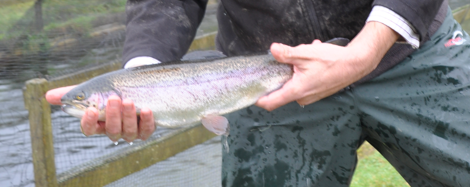
Olly with trout
An important factor is the Routledges’ commitment to run the farm as much as possible on renewable energy. They implemented a hydro-electric supply network to power the offices, equipment and machinery of the fish farm.
They also invested in state-of-the-art equipment including an in-water humane fish stunner and water filtration system, and delivered biodiversity and habitat improvement projects across the farm’s 2,000 hectares.
Selcoth’s main business is raising rainbow trout from ova of up to 200g to 500g for growing in marine areas or freshwater lochs, but the farm also produces and harvests its own trout as part fish. There are four employees working on the fish farm, as well as Olly and Shara, and one part-time employee for the hill.
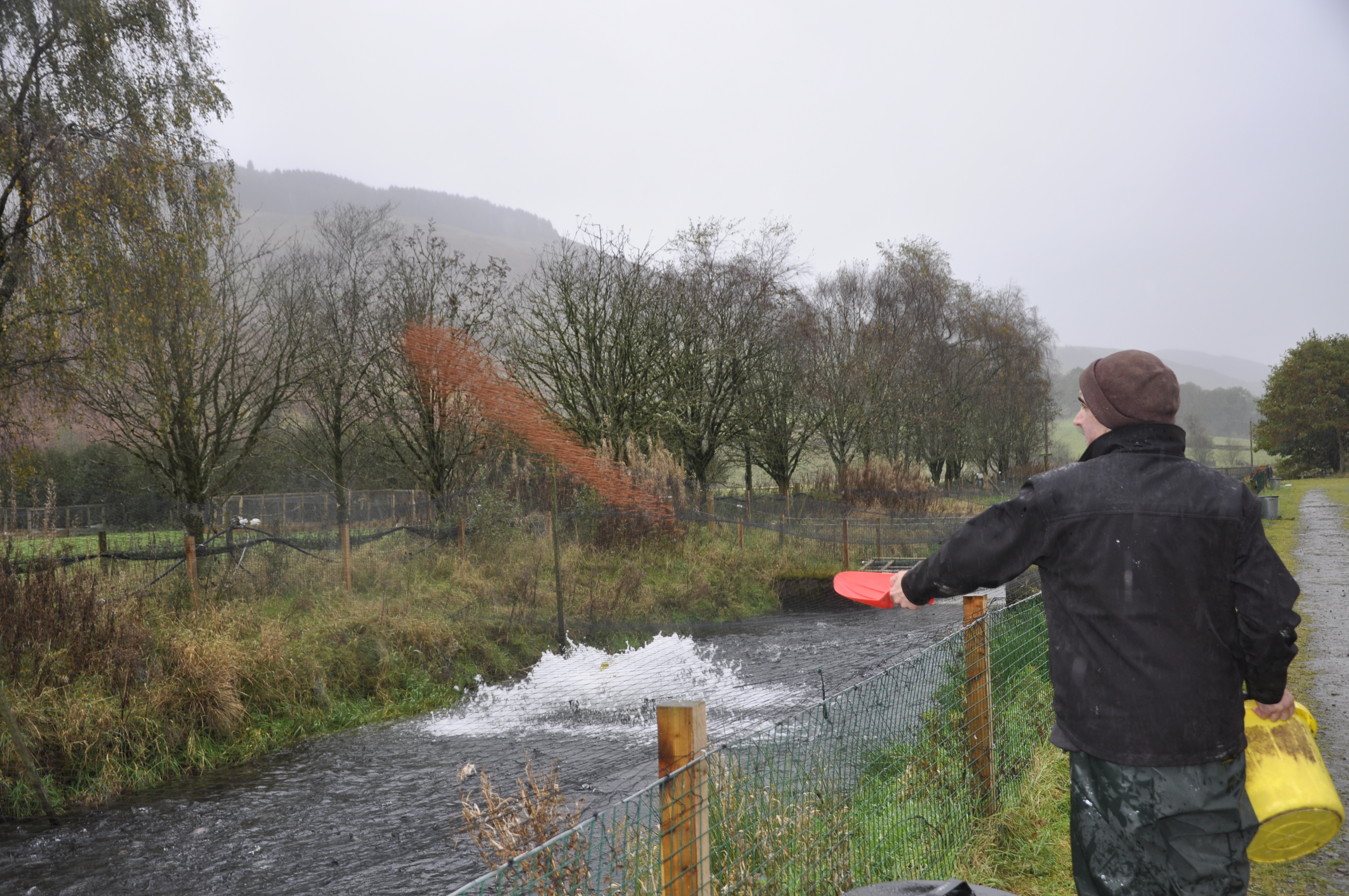
Feeding the fish
Selcoth has been in the same family for three generations, since Olly’s grandmother bought the property as a hill farm in 1963.
In 1976, Olly’s father Peter Routledge started the fish farm. He took a zoology degree at the University of Dundee and worked with Kames on the west coast with Stuart Cannon.
Olly Routledge said: “In the 1970s, fish farming was just beginning and at that time, trout was leading the way.”
Shara added: “Olly’s father realized that the water coming down the valley at Selcoth was beautiful.”
The fresh water at Selcoth farm is sourced from a combination of mountain burns and springs so it is pure and, as south-west Scotland receives more than its average share of rain, it makes for to a reliable source.
Selcoth joined Scot Trout, the cooperative set up by producers to market trout to retailers, but left the group before it ran into trouble in 2008 and was acquired by Dawnfresh Seafoods.
In 2010, Peter Routledge was looking to retire and that year he stepped down, joining Olly and Shara in running the fish farm.

Hatchery and liquid oxygen store
Electric dreams
Olly is a property solicitor specializing in agricultural matters, including renewable energy. This proved useful in setting up a 190kW hydro-electric scheme fed by the same boiler that feeds the farm with water and which now provides power for the entire farming enterprise. Most of the time, there is also spare electricity to sell to the grid for additional income.
The main element of the farm that still relies on mains power is the oxygen generator. It was something Olly and Shara had been thinking about for some time, but it became urgent during the Covid-19 pandemic when liquid oxygen appeared to be needed for hospitals and supplies would be in short supply.
Shara said: “We’ve wanted to make an investment in on-site oxygen generation for a long time, but until then it wasn’t a top priority.”
Fortunately, Routledge were able to use the UK Government’s Coronavirus Business Interruption Loan Scheme to help fund the investment.
The new system was developed by Sterner, which now – together with JT Electric – trades as GroAqua. The Sterner team was able to deploy the new equipment quickly and it was in place in June 2020.
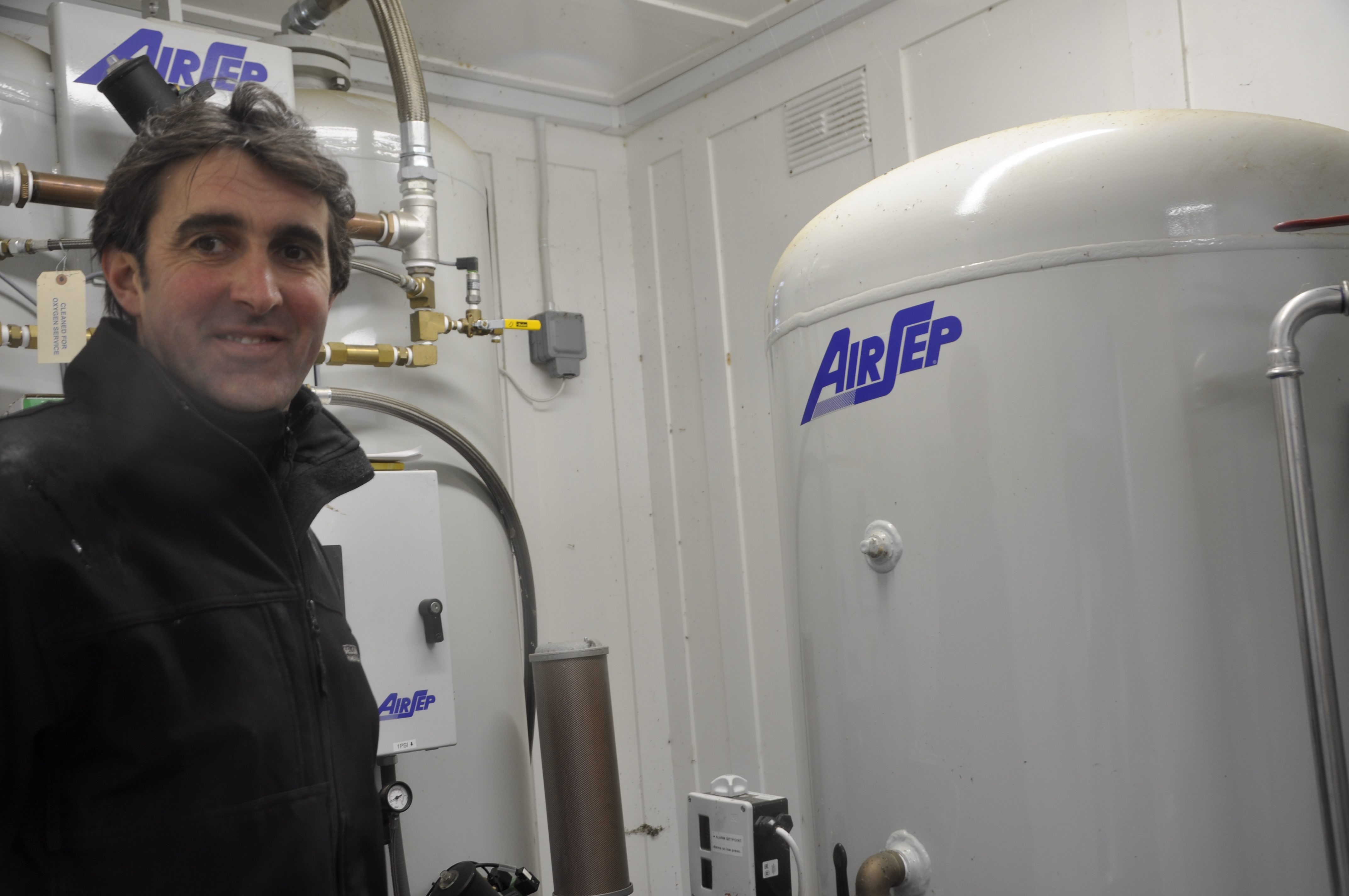
The Groaqua/Sterner
aerator
The hatchery’s storage facility ensures that there is a backup supply of liquid oxygen, which is from Air Products, when needed.
As Olly explained: “The original plan was to power the oxygen generator from hydro, but it has a large 80kw compressor and we are concerned that getting electricity from hydro, especially during periods of low flow in the summer day, will install our electrical. infrastructure under overload.”
Summer, the time of lowest water flow, is also the time when the farm’s demand for oxygen is at its highest.
The next step is the installation of a 100kW ground-mounted solar photovoltaic array – for which planning permission has already been received – which will directly feed the oxygen generator.
Because the hydro scheme is rated at 190kW and the current load of the fish farms only reaches 40kW, leaving a surplus. Instead of selling that back to the grid, however, the Routledges plan to increase on-site electricity use and in the coming year will involve a rebuilding program designed to achieve that.
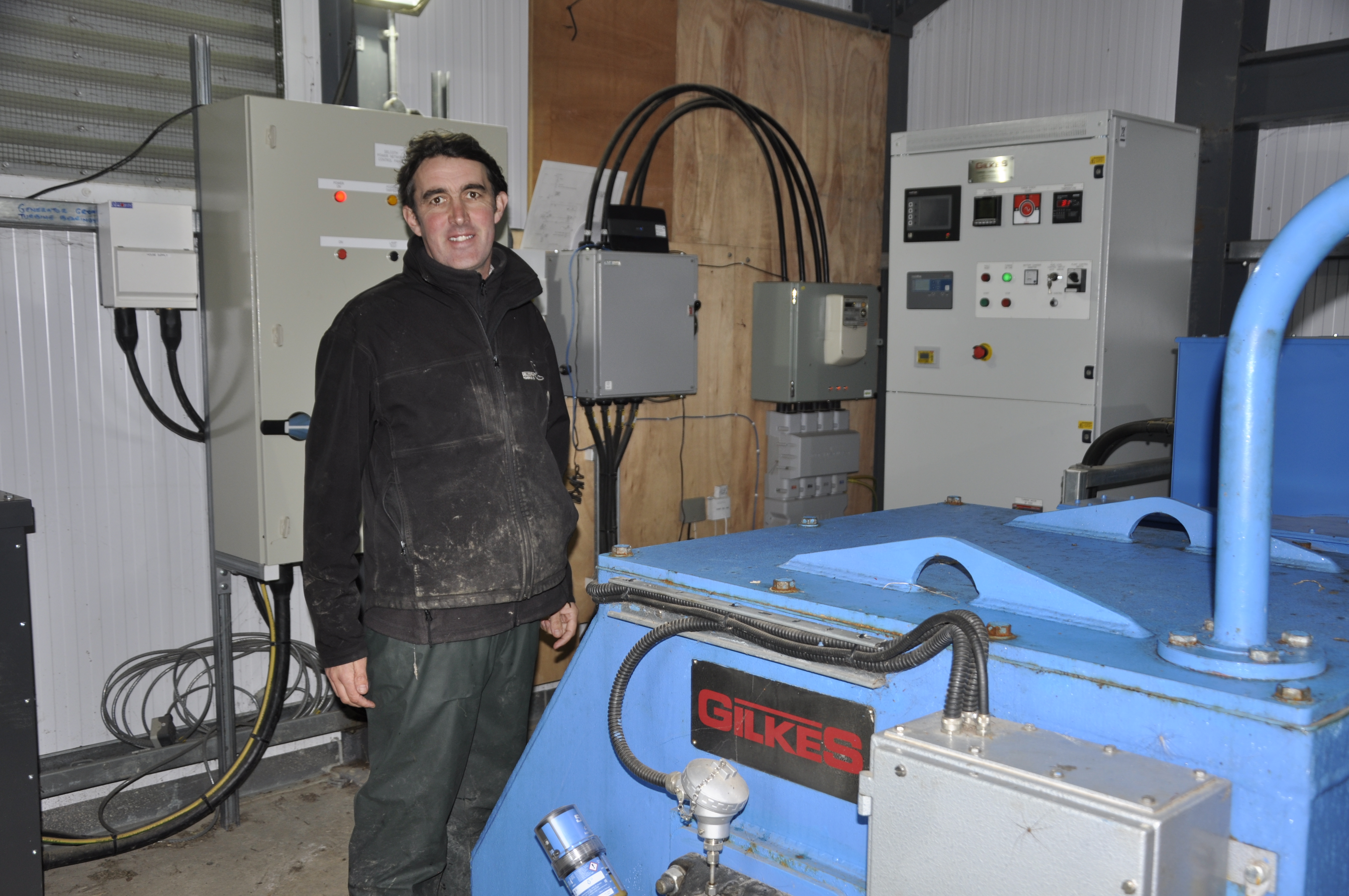
The hydro generator
Building work, partly funded by a grant from Marine Scotland, will start on the hatchery, which is currently empty.
The project will be completed in April.
Selcoth is still a diverse hill farm, with a flock of 300 Scottish blackface ewes.
The Routledges have also pioneered three tree planting schemes in former sheep pastures, restoring native woodland, mainly birch and Scots pine. The investment is supported by the Scottish Government – in two years, there will be more than 400 hectares with 267,000 trees. The farm has been diversified but it is a bigger focus after Olly and Shara took it over in 2010.
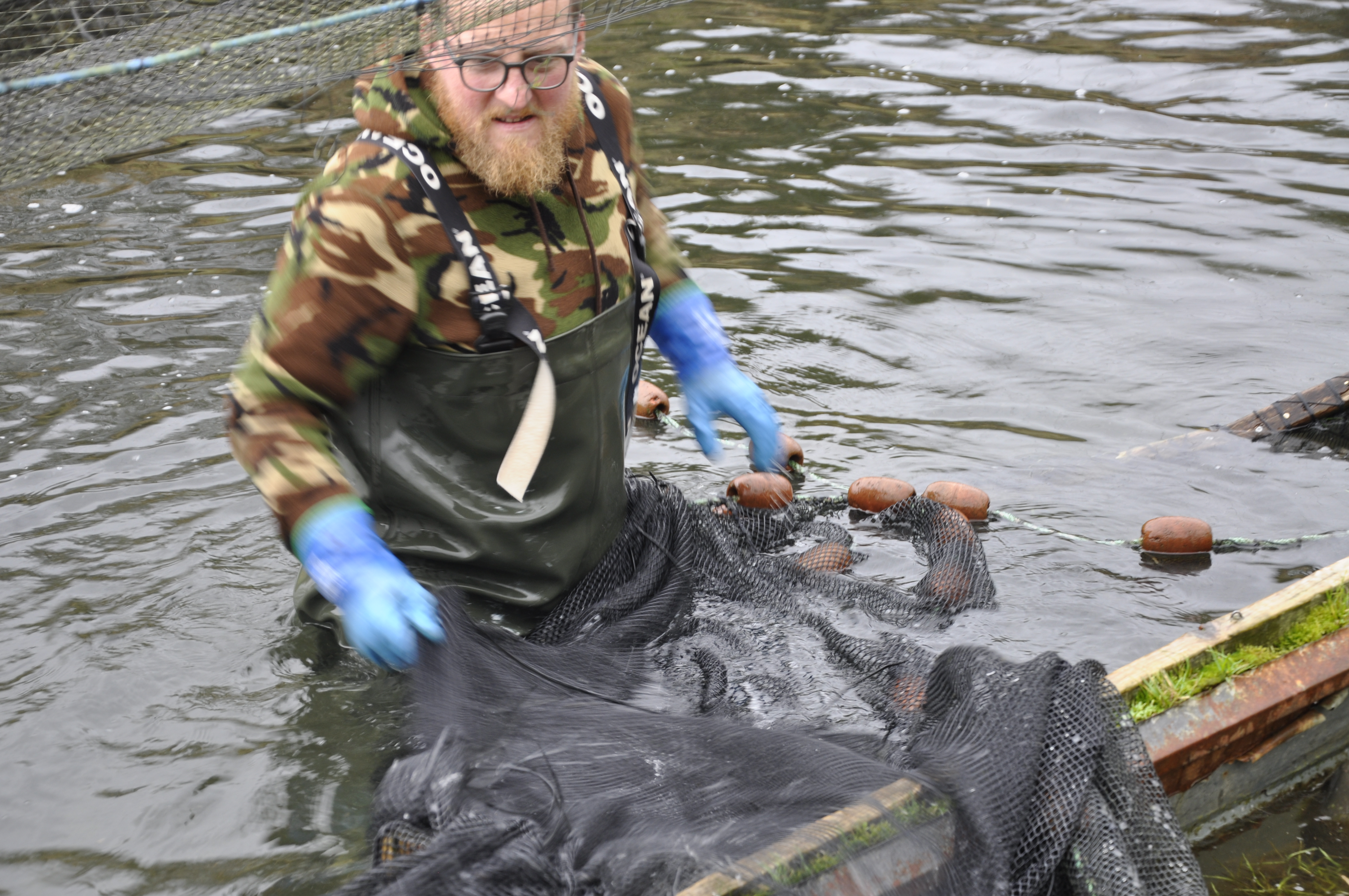
Arran J.Hunter on the pond
Shara says: “To be sustainable as a farm, I think you need a few different business routes that you can take. Sustainability is not always easy.”
Olly agrees, adding that for hill farmers who don’t have diversified income streams: “Things are going to get tougher as agricultural support moves away from being asset-based. land and instead is based more on delivery for the public good.”
He added: “For me, the issue of biodiversity loss is as important as climate change. Biodiversity loss is huge across the planet. Hill farms like this were heavily overgrazed in the 1970s – there were 700 sheep in this field at once.”
Replanting with native species doesn’t just mean more plant diversity – it massively increases the number and variety of animal, bird and insect life.
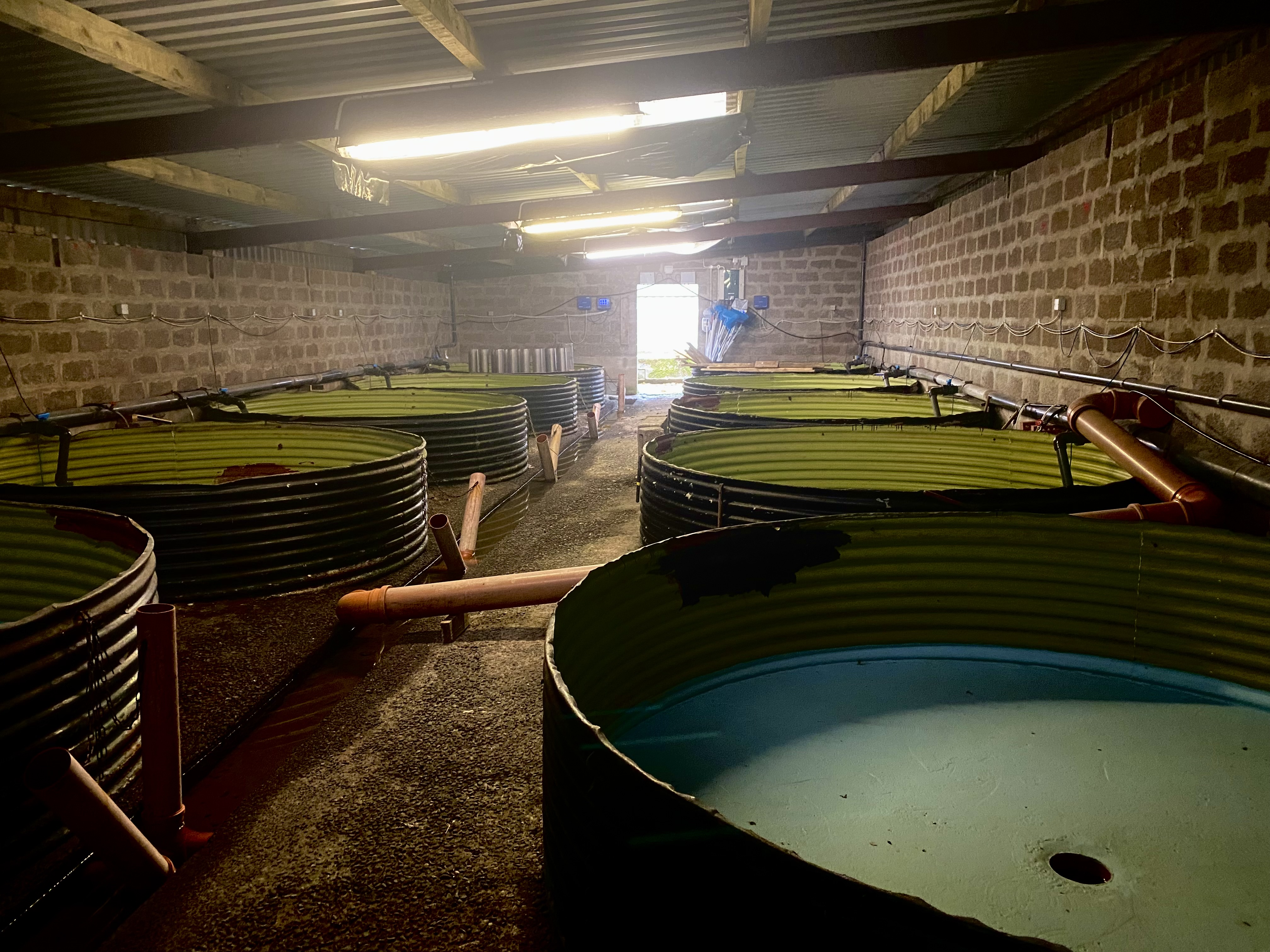
The hatchery, now empty
Change in demand
Scot Trout’s product in the 1980s and 1990s was mainly trout, but the trend today is more towards big trout. Selcoth’s main customer for this is Dawnfresh, whose farming operations have been part of the Mowi group since February.
Selcoth has also found a new processor for its own fish since Dawnfresh Seafoods went into administration – which is a seafood processor as well as running its own fish farm. Selcoth supplies JK Thomson of Musselburgh with portion-sized trout for the restaurant and fishmonger trade.
Olly said: “If you buy a piece of trout produce from a fishmonger in Edinburgh or Glasgow, there’s a good chance it’s ours.”
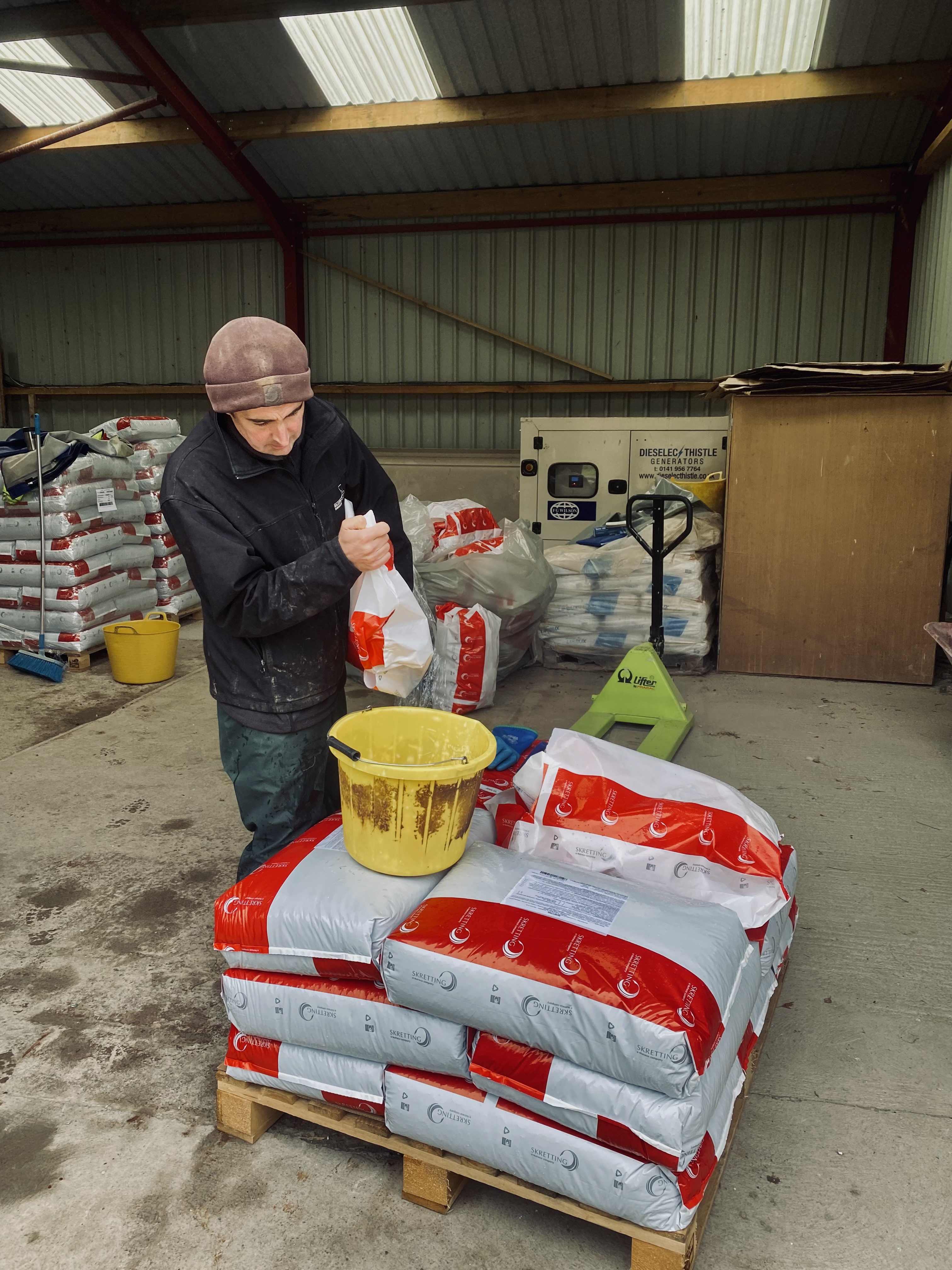
Olly with feed
At one stage, Selcoth even had its own brand of smoked trout. As Shara explained: “It was a great brand and sold at a high price, but it just wasn’t on a scale big enough to make a profit. We couldn’t make the numbers work.”
Harvesting its own fish, Selcoth uses a Vaki fish pump and also installed a humane electrical stunner from Ace Aquatec. The latter was also cited by judges at the Aquaculture Awards as part of Selcoth’s sustainability credentials.
Ongoing challenges include the cost of feed – although it is falling after the 2022 price shock – and the need to make its own feed more sustainable. Whenever possible, the Routledges try to replace fishmeal from wild-caught sources with alternative feed sources in collaboration with their main feed provider, Skretting.
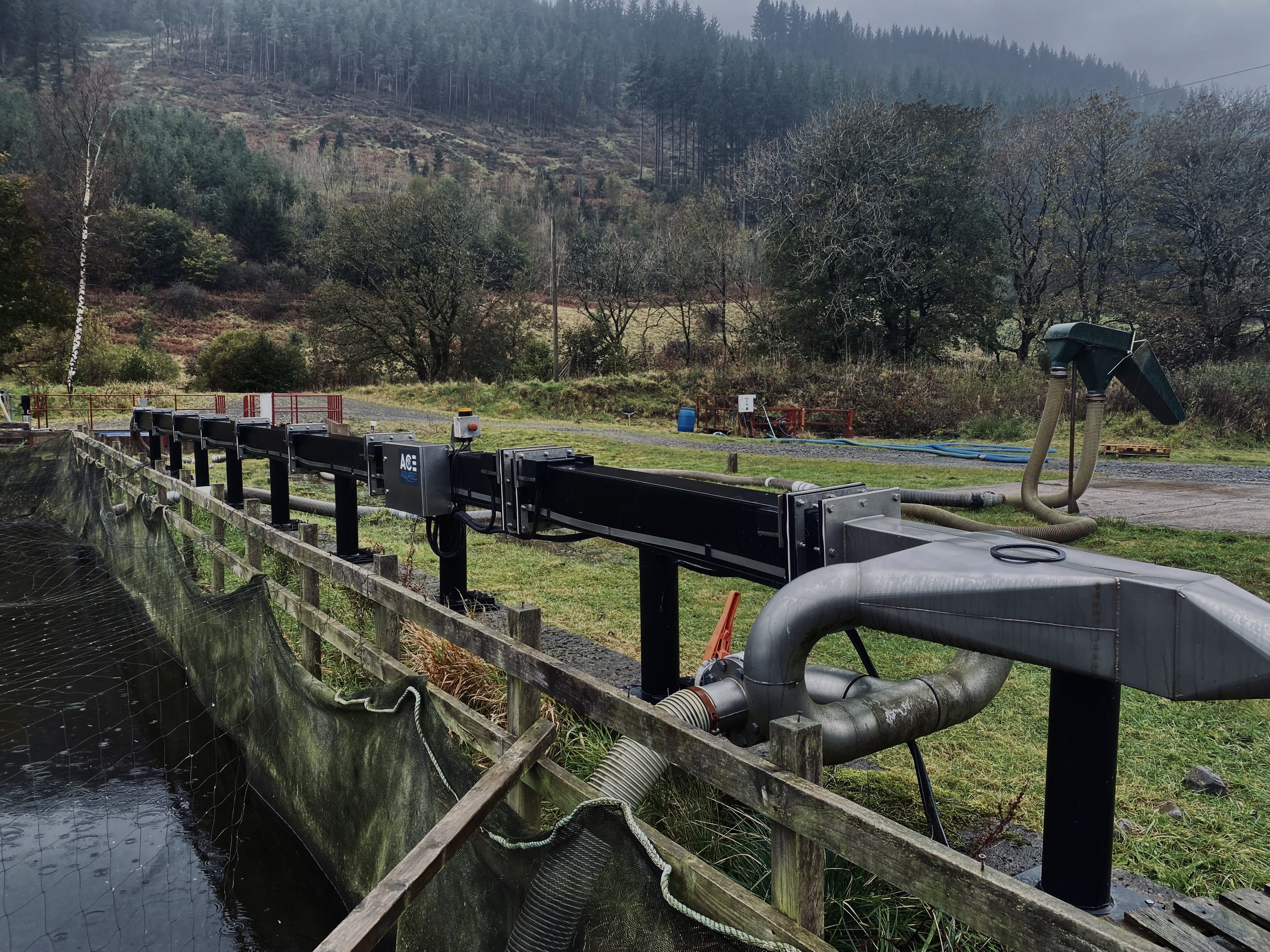
Ace Aquatec stunner
Skretting was also able to provide probiotic feed to help protect the fish against a non-fatal skin infection known as red mark syndrome.
Economic sustainability – ensuring that the business remains financially viable – is obviously important but there is no doubt that the Routledge family is committed to sustainability in the round.
As Shara said: “As farmers and parents, we feel a strong responsibility to reduce our impact on the planet for future generations. On that basis, sustainability has to run all the way to everyone of what we do.”


